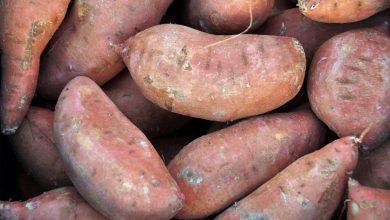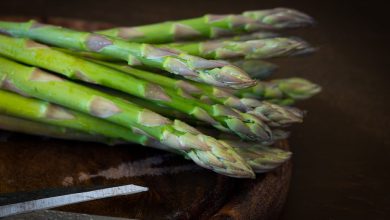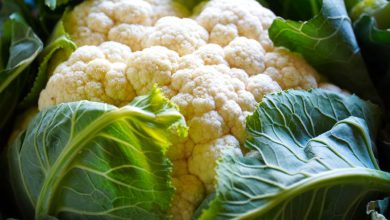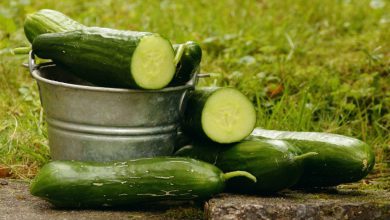Can Bearded Dragons Eat Bell Peppers?
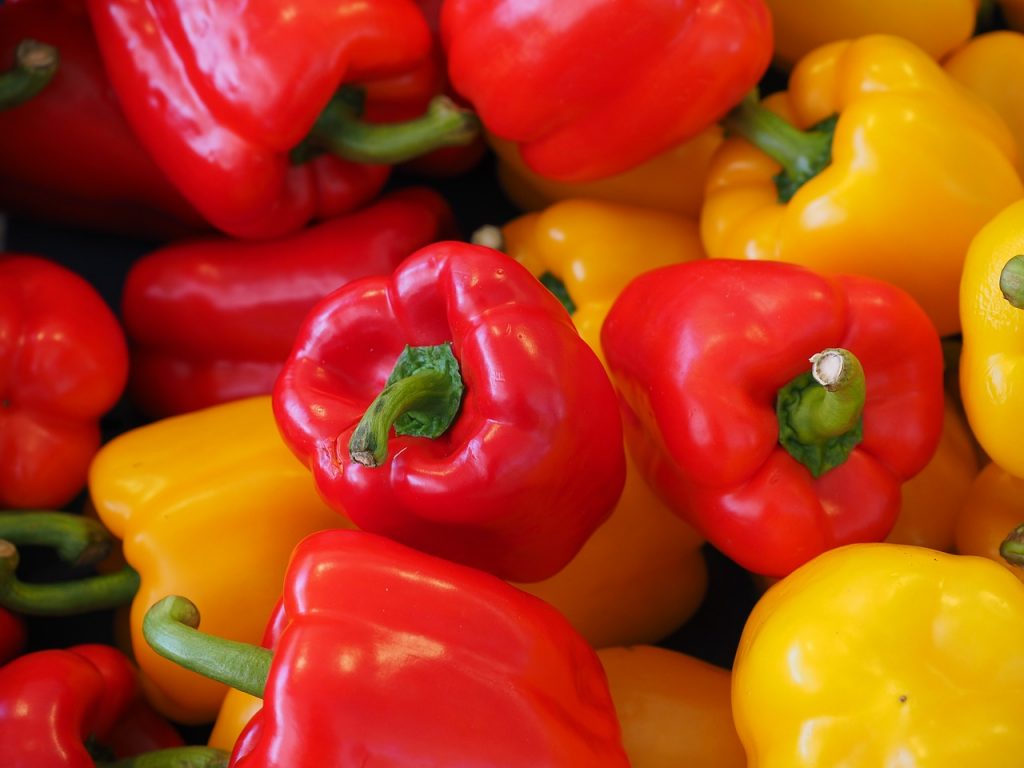
Little represents fresh, summer food better than a sweet, juicy bell pepper. What you might not realize, however, is that bell peppers are absolutely packed with nutrients.
For example, were you aware that bell peppers actually contain more vitamin C than citrus fruit weight-for-weight?
But what about those of us who keep bearded dragons? Are they just as beneficial for your pet? Can bearded dragons eat bell peppers? And if so, what do you need to know?
As it turns out bearded dragons can indeed eat bell peppers.
Just as importantly, in my experience bearded dragons absolutely love the flavor!
However before you go rushing off and tossing a whole bell pepper into your bearded dragon vivarium there are a few finer details you should know…
Can Bearded Dragons Eat Different Color Peppers – Green, Yellow, Orange & Red?
The short answer is… yes.
What you might not know is that red peppers typically start off green. Over time as they ripen they slowly change color. The same goes for yellow and orange peppers. Indeed, some bell peppers may pass through a number of colors before reaching their “ultimate” color.
As the peppers ripen, the sugar content increases. This is why red peppers taste much sweeter than green peppers, which can be quite “sharp” to come people’s palettes.
Whilst bearded dragons can eat bell peppers of any color, it is red and orange peppers that tend to be more popular due to their sweetness.

Can Bearded Dragons Eat Bell Peppers Everyday?
Bearded dragons can eat bell peppers everyday.
However there are two important considerations if you’re feeding your bearded dragon bell peppers regularly.
Firstly, variety is key when it comes to feeding your beardie. While there’s nothing inherently wrong with your bearded dragon eating peppers every day, you should be sure to offer a range of other fruits and vegetables alongside the pepper.
Offering a wide variety of foodstuffs – of which bell peppers are just a small part – minimizes the chances of nutrient deficiencies occurring over time.
Smaller dragons have relatively small appetites in comparison to adults, so giving this wide range of foods isn’t always easy. For this reason some owners prefer to give their bearded dragon bell peppers less frequently. In this way they can cycle through a wider range of foods each week.
The other concern about bearded dragons eating bell peppers every day is that they are quite low in calcium; a crucial mineral for pet bearded dragons. If you’re feeding bell peppers to your bearded dragon frequently then consider either adding a reptile-safe calcium supplement to their meal, or combining bell peppers with some higher-calcium foods to correct this deficiency.
How Often to Feed Bell Peppers To a Bearded Dragon
You can feed your bearded dragon bell peppers daily if desired, but the best feeding frequency is likely to be once or twice a week.
Nutrients Found in Bell Peppers
Bell peppers are such a common foodstuff for many of us that it’s easy to take them for granted. However scientific analysis has shown they really are packed with nutrients that are beneficial for your bearded dragon.
For one thing, bell peppers are known to be high in a wide range of different vitamins. These include vitamin A, thiamin, niacin, folate, vitamin B6, C and K. That really is an awful lot in one tasty package!
In terms of minerals and other nutrients bell peppers contain large amounts of copper, magnesium, manganese and potassium.
Combine all this with the fact that bell peppers are a good source of fiber in the diet too and you can see why feeding bell peppers to your bearded dragon is such a good idea!
Calcium Levels in Bell Peppers
It is absolutely crucial that pet bearded dragons receive sufficient calcium in their diet. As we all know, calcium is used to create healthy bones and teeth. This is especially important for lizards like bearded dragons.
A very low intake of calcium can lead to some serious health conditions in bearded dragons, including death at its most extreme.
Bell peppers have a low calcium content.
This is most easily measured in terms of the calcium:phosphorus ratio. An optimal calcium:phosphorus ratio is twice the amount of calcium as there is phosphorus in the food. This is normally described as a “2:1 ratio”.
Sadly,the calcium to phosphorus ratio in bell peppers sits at around 0.5:1.
What this means is that the calcium levels are very low, and are far from ideal.
This helps to explain why many bearded dragon owners choose not to feed bell peppers each day, and instead only offer it once or twice a week.
Fortunately there are ways to work with the weakness to make bell peppers a more suitable food for bearded dragons.
Supplementation – Possibly the easiest solution is to dust your bearded dragon’s food with a powdered calcium supplement. These are available very cheaply, and there are special reptile-friendly varieties on the market. Simply follow the manufacturer’s instructions and “dust” your beardie’s meal before popping it into the vivarium.
Sale


Fluker’s Calcium Powder for Reptiles – Premium Reptile Calcium Powder with Added Vitamin D3, for Strong Healthy Bones and Vital Functions – Ideal for Lizards, Snakes, Turtles, Frogs – Made in USA – 4oz
- Premium Calcium Powder: Top-tier bearded dragon calcium powder, specially formulated for lizards, snakes, turtles and frogs. It ensures strong, healthy bones and vital bodily functions.
- Essential Reptile Accessories: Part of the essential reptile accessories needed for the optimal health of your reptile. It offers a proper balance of essential nutrients at any stage of life.
- Repti Calcium with added D3: Fluker’s is not just repti calcium, but a calcium supplement for reptiles with added Vitamin D3, perfect for indoor reptiles such as leopard gecko calcium requirements.
Combine With High Calcium Foods – Combining bell peppers with high calcium foods is an alternative solution. Many leafy greens have very good calcium levels, so make perfect partners for bell peppers. Examples of high calcium foods you may want to consider include chard, kale and cabbage.
Oxalic Acid Levels in Bell Peppers
Oxalic acid is a compound found naturally in most plants. While you might never have considered oxalic levels in your own diet, it is a consideration when it comes to feeding bearded dragons.
Oxalic acid can affect how much calcium is absorbed into the body, and therefore how much is available to maintain healthy bones and joints.
The higher the level of oxalic acid in a food, the greater a concern it is.
In an ideal world you’ll try to feed your bearded dragon foods with low levels of oxalates.
Fortunately nutritional analysis of bell peppers demonstrates that they have very low levels of oxalic acid. Studies suggest a single slice of green pepper has just 1mg of oxalic acid, compared to the 10mg found in celery.
This is really good news, and further helps to underline why bell peppers can be a good food for bearded dragons.
How to Feed Bell Peppers To Your Bearded Dragon
Bell peppers are one of the easiest foods to give your bearded dragon because preparation is so simple.
Bearded dragons can eat the flesh and skin of bell peppers. However they shouldn’t be given the seeds or the green stem, both of which can represent a choking hazard.
As with other fruits and vegetables given to your bearded dragon, try to choose the freshest produce possible. This will have the highest nutrient content in comparison to a pepper that has sat unloved in your fridge for a week or two.
Simply slice or dice the juicy pepper fruit, combine it with other foods to create a varied “salad” of food and dust it with calcium powder once or twice a week.
Lastly, be aware that bell peppers can quickly go off in the warm environment of a bearded dragon cage. Mold may grow surprisingly quickly. So don’t leave uneaten bell pepper in the vivarium for too long if you want to avoid the risk of an upset stomach.
